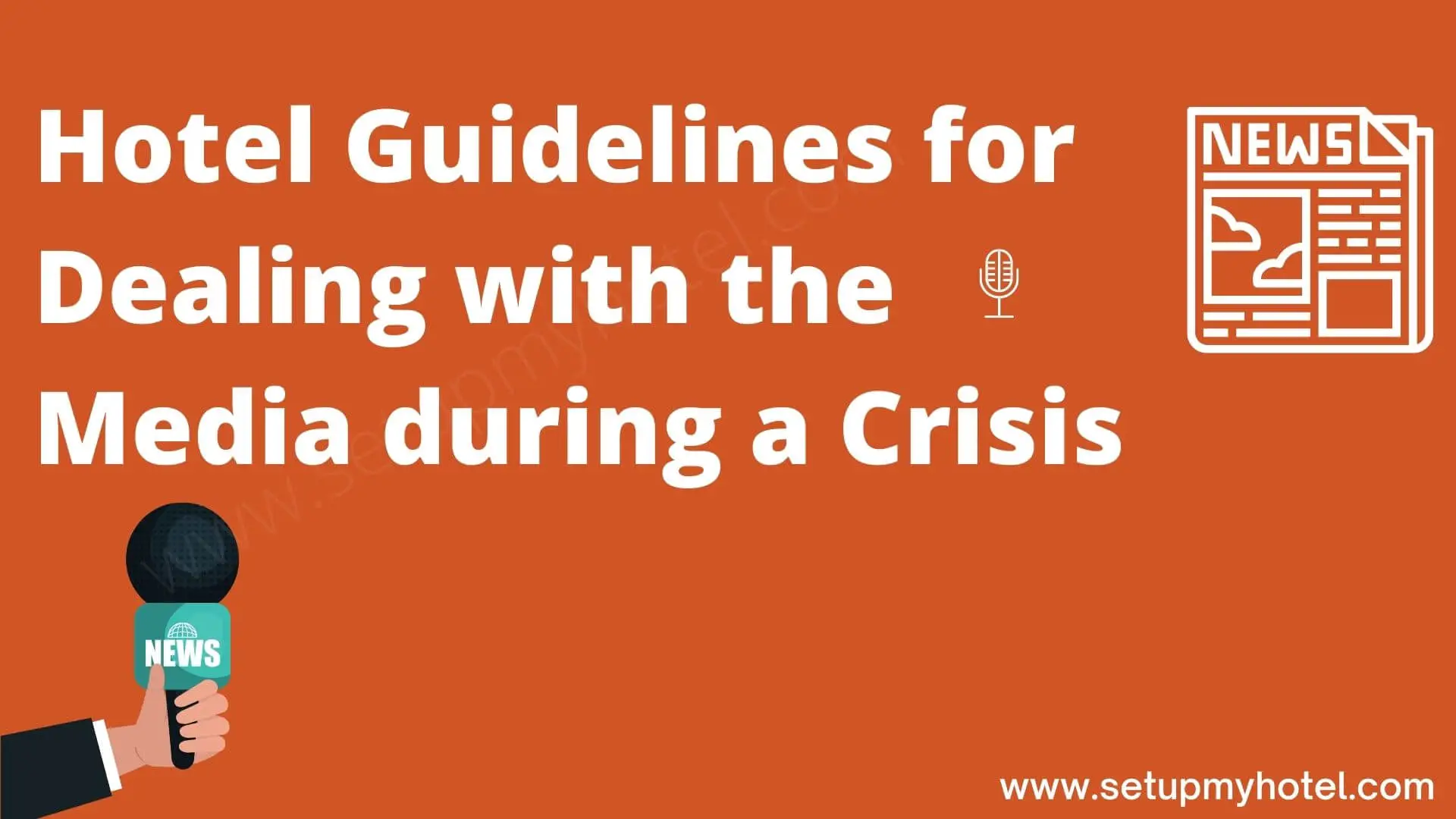Hotel Guidelines For Dealing With The Media During A Crisis
When a crisis occurs in a hotel, it’s important to have a plan in place for how to handle the media. By following these guidelines, hotel staff can ensure that they are prepared to communicate effectively and efficiently in a time of crisis. Firstly, it’s important to designate a spokesperson who will be responsible for communicating with the media. This person should be someone who is knowledgeable about the situation and who has received media training.
Secondly, the hotel should have a clear message that they want to communicate to the media. This message should be consistent and should be communicated by the designated spokesperson. Thirdly, the hotel should be proactive in reaching out to the media. This can include issuing a press release, holding a press conference, or conducting interviews with reporters.
Fourthly, it’s important to be honest and transparent with the media. This means providing accurate information about the situation and being willing to answer tough questions. Finally, the hotel should be prepared to respond quickly to media inquiries. This means having a system in place for monitoring media coverage and responding to media requests in a timely manner.
By following these guidelines, hotels can effectively manage their communication with the media during a crisis and ensure that their message is heard loud and clear.
Hotel Guidelines For Dealing With The Media During A Crisis
- Be professional and remember that your picture may be taken or you may appear on television, so dress appropriately.
- Update the press regularly. Be proactive. If you prepare a press release, distribute copies to all interested reporters.
- Identify yourself and your position before any exchange with the media.
- Speak calmly and clearly. Project the image that you are a professional who knows how to deal properly with a difficult situation.
- Avoid speculating as to the causes or outcomes of the crisis. Speak only to those items about which you have factual knowledge.
- Express genuine concern for the suffering of the victims.
- Avoid graphic descriptions of events or injuries.
- Do not release the names of victims or suspects. Refer these questions to the appropriate party, such as the police or medical facilities.
- Never reply to a question with “no comment.” If you truly cannot comment, give an honest reason why you cannot. Legitimate reasons not to respond to a specific question include:
- Pending legal investigation
- Incomplete information
- Responsibility to respond falls to another (give that person’s name)
- Remember that your primary responsibility to the media during a crisis is to provide factual information and to express genuine concern for any crisis victims. But you also have an opportunity to emphasize the positives of your organization even in the face of the crisis. Mention, for example, safety and security efforts in place, training programs implemented that relate to the crisis, and your commitment to cooperate fully with all investigating authorities.
- Expect tough questions, and practice your answers to them. Do not become belligerent or hostile to reporters.
- Never demand to see or review a reporter’s story before it is printed. Never agree to speak off the record. (Off the record: An oral agreement between a reporter and an interviewee wherein the reporter promises not to quote the interviewee’s comments for publication.)
- If you feel that you or your organization has been unfairly depicted in the reporting of the crisis, contact the reporter to calmly retell the factual side of the story.
- Temporarily suspend advertising for some time appropriate for the crisis endured.
- Consider creating a publicity campaign to counteract any negative impact caused by the crisis.











